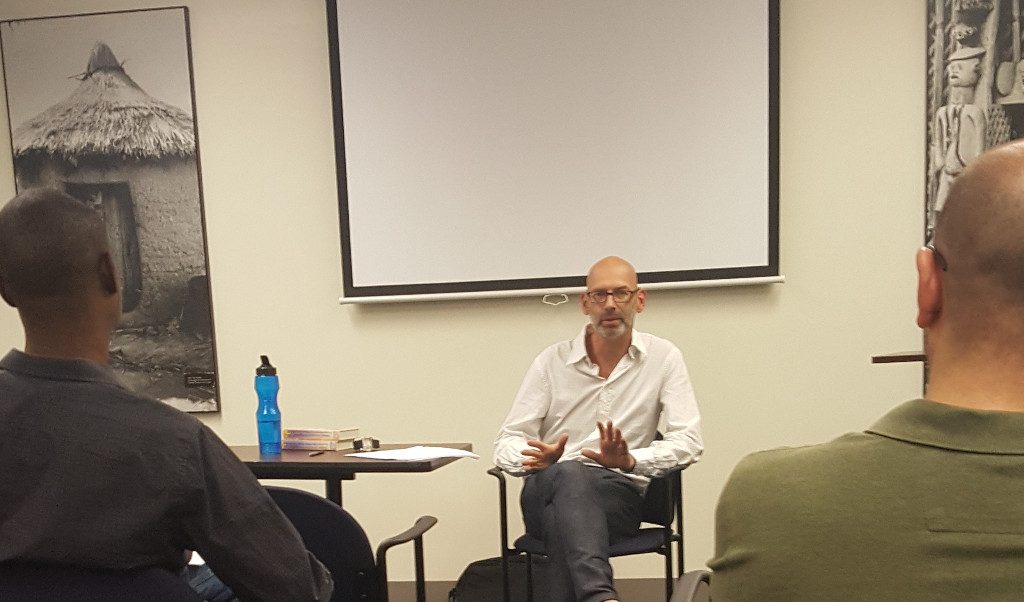 On Monday, October 17th, Ferdinand de Jong gave an African Migrations talk titled “Cultural Festivals: Archives of Tradition for Global Migrants.” Dr. de Jong is a Senior Lecturer in the School of Art, Media and American Studies at the University of East Anglia, UK. The talk presented de Jong’s chapter (available here) from a recently published edited volume, Performing Pan-Africanism (2016, Liverpool University Press).
On Monday, October 17th, Ferdinand de Jong gave an African Migrations talk titled “Cultural Festivals: Archives of Tradition for Global Migrants.” Dr. de Jong is a Senior Lecturer in the School of Art, Media and American Studies at the University of East Anglia, UK. The talk presented de Jong’s chapter (available here) from a recently published edited volume, Performing Pan-Africanism (2016, Liverpool University Press).
Paper Abstract: Cultural Festivals in Senegal are staged in various contexts. Ranging from village reunions to tourist attractions, these festivals serve a wide array of local, national and international audiences. Most remarkable, however, in their variety, is the range of purposes these cultural festivals are mobilised for. By staging cultural performances ranging from sheep-herding, capoeira, and gigs by world music stars, cultural festivals are said to promote peace, development, cultural metissage and a host of other modernising tropes. In all of these contexts, culture is performed as cure. As these cultural performances claim to have their origins in tradition and are presented as panacea against the ills of modernity, culture is here represented as both source and resource. As the tensions that might be expected to arise from such a dual conceptualisation of culture remain largely disavowed, cultural festivals are uninhibited to call upon local cultural archives and embed their uses in a range of modernising discourses. Paradoxically, these cultural performances often owe their format to the performances that the colonised staged at colonial exhibitions. But by presenting the cultural performances as having their source in local culture, this established origin in colonial relations is carefully disavowed. Thus, acknowledging a genealogy of cultural performance that openly claims to have its origins in ‘tradition’ in order to cure the ills of modernity, this article demonstrates how these cultural festivals draw upon a cultural archive of performances and present them in different repertoires for a range of modernising purposes. The article argues that the Senegalese independent state has reclaimed the format of the colonial exhibit for a modernist agenda by deliberately forgetting the colonial origins of its cultural archive.